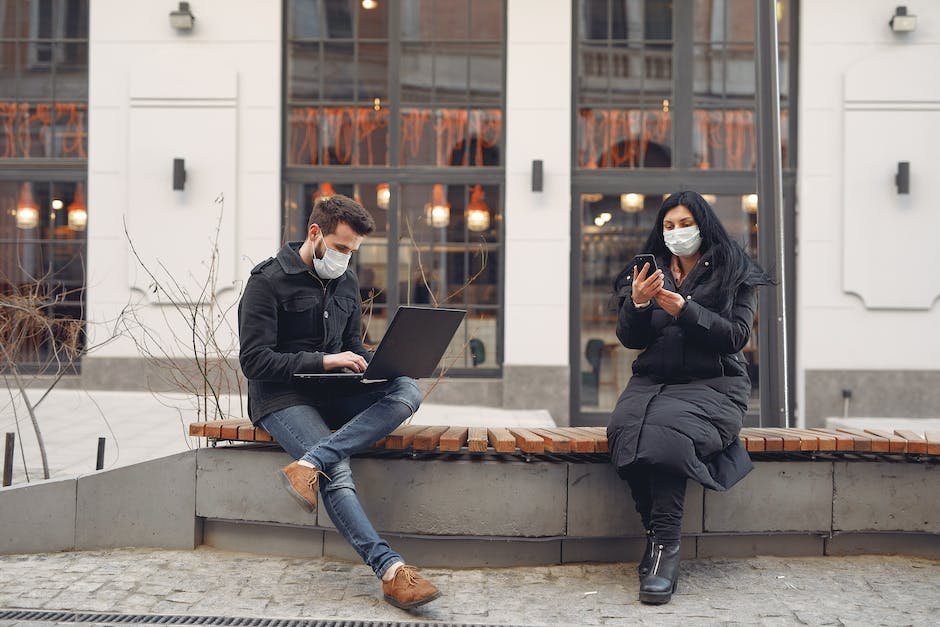The world of healthcare has always been rooted in human connection, with doctors and nurses providing hands-on care to patients in need. However, as the digital age continues to revolutionize various industries, the healthcare sector is not exempt from its transformative touch. Enter remote work – a concept that has gained significant traction in recent years, allowing professionals to carry out their duties from the comfort of their own homes. While remote work has already made its mark in fields like technology and finance, its potential impact on the future of healthcare is a topic that demands exploration. From telemedicine to virtual consultations, this article delves into the ways in which remote work is reshaping the landscape of healthcare, and the implications it holds for both patients and practitioners alike.
Table of Contents
- The Impact of Remote Work on Healthcare Professionals
- The Advantages and Challenges of Remote Healthcare Services
- Enhancing Patient Care through Remote Work in Healthcare
- Implementing Effective Remote Work Strategies in the Healthcare Industry
- Future Trends and Recommendations for Remote Work in Healthcare
- Q&A
- Final Thoughts

The Impact of Remote Work on Healthcare Professionals
As the world continues to embrace remote work, the healthcare industry has also experienced a significant impact. This shift has brought about both challenges and opportunities for healthcare professionals, transforming the way they deliver care and interact with patients.
Increased flexibility: Remote work has provided healthcare professionals with the ability to work from anywhere, allowing them to better balance their personal and professional lives. This flexibility has been particularly beneficial for those with caregiving responsibilities or individuals who live in remote areas with limited access to healthcare facilities.
Virtual consultations: With the rise of telemedicine, healthcare professionals can now conduct virtual consultations with patients, eliminating the need for in-person visits for certain conditions. This has not only improved access to care for patients but has also reduced the strain on healthcare facilities and minimized the risk of exposure to contagious diseases.
Collaboration and knowledge sharing: Remote work has facilitated collaboration among healthcare professionals across different locations. Through virtual meetings and online platforms, doctors, nurses, and other healthcare providers can easily share knowledge, discuss cases, and seek advice from their peers. This has fostered a sense of community and enhanced the quality of care provided to patients.
Challenges to overcome: While remote work has brought numerous benefits, it has also presented challenges for healthcare professionals. The lack of physical presence and direct patient interaction can sometimes make it difficult to establish rapport and provide the same level of personalized care. Additionally, technological barriers and the need for secure communication platforms have become crucial considerations in ensuring patient privacy and data protection.
In conclusion, has been transformative. It has provided increased flexibility, enabled virtual consultations, promoted collaboration, and facilitated knowledge sharing. However, it also comes with its own set of challenges that need to be addressed to ensure the highest standard of care is maintained.

The Advantages and Challenges of Remote Healthcare Services
Remote healthcare services, also known as telehealth or telemedicine, have revolutionized the way healthcare is delivered. This innovative approach offers numerous advantages that benefit both patients and healthcare providers. Firstly, remote healthcare services provide convenient access to medical care, especially for individuals living in rural or underserved areas. Patients can now receive expert medical advice and treatment without the need to travel long distances or wait for appointments. This accessibility is particularly crucial for individuals with limited mobility or chronic conditions.
Secondly, remote healthcare services have proven to be cost-effective. By eliminating the need for in-person visits, patients can save on transportation costs and reduce the burden of medical expenses. Additionally, healthcare providers can optimize their resources and reach a larger patient population, resulting in improved efficiency and reduced healthcare costs overall.
However, despite these advantages, remote healthcare services also present unique challenges. One of the main concerns is the potential lack of personal interaction between patients and healthcare professionals. While technology allows for effective communication, some patients may still prefer face-to-face consultations for a more personalized experience. Moreover, technical difficulties or connectivity issues can hinder the seamless delivery of remote healthcare services, leading to frustration for both patients and providers.
In conclusion, remote healthcare services offer significant advantages in terms of accessibility and cost-effectiveness. However, challenges such as the potential lack of personal interaction and technical issues need to be addressed to ensure the successful implementation and widespread adoption of this innovative approach to healthcare delivery.
Enhancing Patient Care through Remote Work in Healthcare
Remote work has revolutionized the healthcare industry, paving the way for enhanced patient care like never before. With the advent of technology, healthcare professionals can now provide their expertise and support from a distance, ensuring that patients receive the care they need, regardless of their location.
One of the key benefits of remote work in healthcare is the ability to reach patients in rural or underserved areas. Through telemedicine, doctors can connect with patients through video calls, providing consultations, diagnosing illnesses, and even prescribing medications. This not only saves patients the hassle of traveling long distances but also reduces the strain on healthcare facilities, allowing them to allocate resources more efficiently.
Moreover, remote work enables healthcare professionals to collaborate seamlessly, regardless of their physical location. Through secure communication platforms, doctors, nurses, and specialists can share patient information, discuss treatment plans, and seek second opinions. This collaborative approach ensures that patients receive comprehensive and well-rounded care, as multiple experts can contribute their insights and expertise.
- Remote work in healthcare allows for greater flexibility and work-life balance for healthcare professionals.
- It reduces the risk of exposure to contagious diseases for both patients and healthcare providers.
- Remote monitoring devices enable continuous tracking of patients’ vital signs, ensuring timely intervention and proactive care.
In conclusion, the integration of remote work in healthcare has opened up new avenues for enhancing patient care. By leveraging technology and embracing telemedicine, healthcare professionals can overcome geographical barriers, collaborate effectively, and provide personalized care to patients, ultimately improving health outcomes and transforming the way healthcare is delivered.

Implementing Effective Remote Work Strategies in the Healthcare Industry
As the world continues to adapt to the challenges posed by the COVID-19 pandemic, the healthcare industry has been at the forefront of implementing remote work strategies to ensure the safety of both patients and healthcare professionals. Embracing technology and innovative solutions, healthcare organizations have found ways to provide quality care while minimizing physical contact. Here are some effective strategies that have been successfully implemented:
- Telemedicine: The use of telecommunication technology has revolutionized healthcare delivery. Through video consultations, patients can receive medical advice, diagnosis, and even prescriptions without leaving their homes. This not only reduces the risk of exposure to contagious diseases but also improves accessibility to healthcare services, especially for those in remote areas.
- Virtual Training and Education: Healthcare professionals can enhance their skills and knowledge through virtual training programs and webinars. These platforms provide interactive learning experiences, allowing healthcare workers to stay updated with the latest medical advancements and best practices. Virtual education also enables collaboration and knowledge sharing among professionals from different locations.
- Remote Monitoring: With the help of wearable devices and remote monitoring systems, healthcare providers can track patients’ vital signs and health conditions from a distance. This allows for early detection of potential issues and timely intervention, reducing the need for in-person visits and hospitalizations.
By implementing these remote work strategies, the healthcare industry has not only adapted to the current crisis but has also discovered new ways to improve patient care and operational efficiency. As technology continues to advance, it is crucial for healthcare organizations to embrace these strategies and continue exploring innovative solutions to meet the evolving needs of patients and healthcare professionals.
Future Trends and Recommendations for Remote Work in Healthcare
The healthcare industry has witnessed a significant shift towards remote work in recent years, and this trend is expected to continue in the future. As technology continues to advance, healthcare professionals are finding new ways to provide quality care from a distance. Here are some :
- Telemedicine: Telemedicine has emerged as a game-changer in remote healthcare. It allows patients to consult with healthcare providers through video calls, eliminating the need for in-person visits. This trend is expected to grow exponentially, making healthcare more accessible and convenient for patients worldwide.
- Remote Monitoring: With the advent of wearable devices and remote monitoring technology, healthcare professionals can now monitor patients’ vital signs and health conditions from a distance. This not only improves patient outcomes but also reduces the need for hospital visits, leading to cost savings and increased efficiency.
- Collaborative Platforms: As remote work becomes more prevalent in healthcare, the need for efficient collaboration tools is crucial. Healthcare organizations should invest in secure and user-friendly platforms that enable seamless communication and information sharing among healthcare professionals.
It is important for healthcare professionals to adapt to these future trends and embrace remote work opportunities. By leveraging technology and staying updated with the latest advancements, healthcare providers can enhance patient care, improve efficiency, and overcome geographical barriers. Remote work in healthcare is not just a trend; it is the future of healthcare delivery.
Q&A
How will remote work impact the future of healthcare?
Remote work will revolutionize the healthcare industry by allowing healthcare professionals to provide virtual consultations, monitor patients remotely, and collaborate with colleagues from anywhere in the world. This will improve access to healthcare, reduce costs, and enhance patient outcomes.
What are the benefits of remote work in healthcare?
Remote work in healthcare offers numerous benefits, including increased flexibility for healthcare professionals, reduced commuting time, improved work-life balance, and the ability to reach patients in remote areas. It also enables healthcare organizations to tap into a global talent pool and enhance interdisciplinary collaboration.
Will remote work compromise the quality of patient care?
While remote work introduces new challenges, such as potential technical issues and the need for robust cybersecurity measures, it can actually enhance the quality of patient care. Remote monitoring and telemedicine allow for more frequent check-ins, early detection of health issues, and personalized care plans, ultimately improving patient outcomes.
How will remote work impact healthcare professionals?
Remote work will empower healthcare professionals by providing them with greater autonomy and flexibility in managing their schedules. It will also enable them to work from home or any location of their choice, reducing burnout and improving job satisfaction. Additionally, remote work will facilitate knowledge sharing and collaboration among healthcare professionals worldwide.
What are the challenges of implementing remote work in healthcare?
Implementing remote work in healthcare requires addressing various challenges, such as ensuring secure and reliable telecommunication infrastructure, training healthcare professionals in remote care technologies, and maintaining patient privacy and data security. Additionally, regulatory frameworks need to be adapted to accommodate remote healthcare practices.
How will remote work impact patient-doctor relationships?
Remote work will transform patient-doctor relationships by enabling more frequent and convenient communication. Patients will have easier access to healthcare professionals, leading to stronger relationships built on trust and improved patient engagement. However, in-person interactions will still be necessary for certain medical procedures and emergencies.
What role will technology play in the future of remote healthcare?
Technology will play a crucial role in the future of remote healthcare. Advancements in telemedicine, wearable devices, artificial intelligence, and data analytics will enable remote monitoring, accurate diagnoses, and personalized treatment plans. Integrating technology into remote healthcare practices will enhance efficiency, accuracy, and patient satisfaction.
How will remote work impact healthcare organizations?
Remote work will transform healthcare organizations by reducing the need for physical office spaces and enabling cost savings. It will also allow organizations to recruit and retain top talent from around the world, leading to a more diverse and skilled workforce. Remote work will foster innovation and collaboration, driving the development of new healthcare solutions.
Final Thoughts
As we gaze into the crystal ball of the future, it becomes increasingly clear that remote work is set to revolutionize the very fabric of healthcare. The convergence of technology and medicine has birthed a new era, where geographical boundaries are shattered, and healthcare professionals can extend their healing touch to the farthest corners of the world. The impact of remote work on healthcare is not merely a passing trend, but a seismic shift that will reshape the landscape of patient care, medical education, and research.
Imagine a world where a doctor in a bustling metropolis can diagnose and treat a patient in a remote village, thousands of miles away. With the power of telemedicine, this vision is no longer a distant dream but a tangible reality. Remote work has paved the way for virtual consultations, enabling patients to receive expert medical advice without the need for physical proximity. This not only saves time and money but also ensures that healthcare reaches those who have been historically underserved.
But the impact of remote work on healthcare extends far beyond the realm of patient care. It has the potential to revolutionize medical education, breaking down the barriers of traditional classroom learning. With remote work, aspiring doctors can access lectures, seminars, and even surgical procedures from the comfort of their own homes. This democratization of knowledge will empower a new generation of healthcare professionals, fostering innovation and collaboration on a global scale.
Furthermore, remote work has the power to transform medical research. By connecting researchers from different corners of the world, it opens up a vast pool of expertise and resources. Collaborative efforts can now transcend borders, leading to breakthroughs in treatment, drug development, and disease prevention. The future of healthcare lies not in isolated laboratories but in a connected network of brilliant minds, working together to unravel the mysteries of the human body.
As we bid farewell to the traditional confines of healthcare, we must embrace the boundless possibilities that remote work brings. However, we must also tread cautiously, ensuring that the human touch and empathy that define healthcare are not lost in the digital realm. The future of healthcare lies in striking a delicate balance between technology and compassion, harnessing the power of remote work to enhance patient outcomes while preserving the essence of human connection.
In conclusion, the impact of remote work on the future of healthcare cannot be overstated. It is a force that will reshape the way we deliver care, educate future healthcare professionals, and conduct groundbreaking research. As we embark on this transformative journey, let us embrace the opportunities that remote work presents, while never forgetting the fundamental purpose of healthcare – to heal, comfort, and uplift the human spirit.
As an affiliate, my content may feature links to products I personally use and recommend. By taking action, like subscribing or making a purchase, you’ll be supporting my work and fueling my taco cravings at the same time. Win-win, right?
Want to read more? Check out our Affiliate Disclosure page.